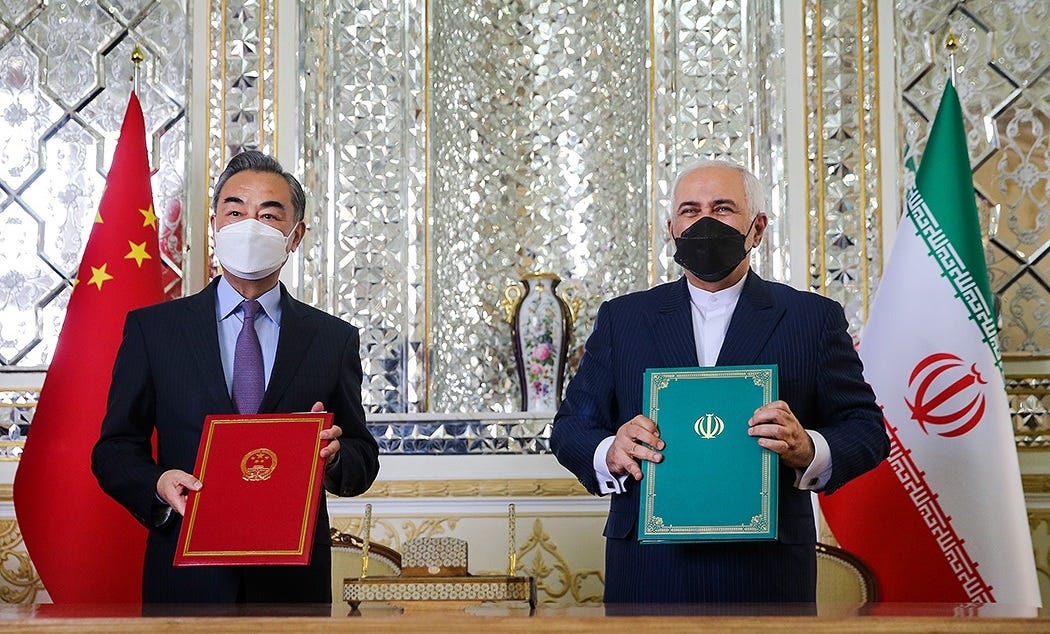Israel-Iran War: The Psychology of Strategic Surprise
The deadly cost of strategic overconfidence
This guest post by WeissWord and was originally published on Weissword Substack.
All future stories written by Reuben Salsa (every Thursday, 8 am Auckland time) will be for paid subscribers only. Guest posts will remain free and posted every Sunday (8 am Auckland time).
For more articles by Jewish authors, subscribe to the JPF on Medium (click on the image below).
Israel-Iran War: The Psychology of Strategic Surprise
"There are four hundred well-marked graves somewhere in Sicily—just because one man went to sleep on the job. But the graves are German graves, because we caught the bastard asleep before they did." — General George Patton
The Morning That Changed Everything
In the early morning hours, Israeli Air Force jets streaked toward predetermined targets in Iran. Since then, they've maintained unprecedented control over Iranian airspace—a feat unmatched in military history. This ongoing operation, codenamed "Operation Rising Lion," represents Israel's most ambitious military campaign against Iran to date.

Since the outbreak of war on October 7, 2023, when Hamas invaded Israel and broadcast genocide against Israelis live on social media to the world, three military powers have experienced surprise attacks that gave their attackers significant advantages. Hamas surprised Israel, Syrian rebels surprised Russia, and Israel surprised Iran. Despite satellites, cameras, sensors, social networks, open-source intelligence, and more, each side used different tactics within a very short timeframe. While Hamas failed to leverage the surprise factor for significant gains against Israel, the rebels in Syria took over the country, and Israel has spent just days dismantling the limbs of the extremist Islamic authority ruling Tehran and its military installations.
The implications are staggering: no side in the world has the ability to truly know what's brewing in the mind of any given leader. No one really knows their enemy. None of the world's most senior and sharpest analysts can predict with certainty how any country will behave. There are assessments, of course, but no one knows for certain how events will unfold.
Hezbollah's Fatal Miscalculation
Take Hezbollah, for example. On the second day of the war with Hamas, Hassan Nasrallah began a drip campaign of attacks on the Galilee mountain ridge, forcing the Israeli government to evacuate tens of thousands of residents from their homes. Nasrallah saw Israeli society as a spider web that could be easily unraveled - a divided and weak society that preferred the good life over war, careful about its soldiers' lives.
The extreme expression that gave Nasrallah reinforcement for his held conception was how Hamas damaged Israel in a way that diminished its image as a regional military power, and his achievements in battles against Israel misled Hassan Nasrallah into believing in the conception that Israel wouldn't dare open war against Hezbollah.
The Iranian Conception
The assassination of Mohammad Reza Zahedi on April 1, 2024
The elimination and injury of thousands of Hezbollah operatives forced the organization to mobilize Hezbollah personnel from Syria to Lebanon, and the vacuum created allowed Turkey to go to war against Assad's army and Russian and Iranian armed forces through Syrian rebel forces. Even the elimination of Nasrallah and other senior Hezbollah officials didn't awaken the Iranian leadership to challenge the conception regarding the possibility that Israel would surprise and attack the Iranians similarly.
The Changing American Equation
Tehran's decision-makers didn't assess that the change of administration in the White House created a dynamic shift in American perspective toward Iran. The Biden administration operated under the strategic conception of "de-escalation" - avoiding military friction and using diplomatic tools to reduce violence. Therefore, the Biden administration allowed Iran to openly export oil to the world market and believed that compromises with Iran would encourage it to sign a new nuclear deal. This didn't happen. The Trump administration operated on two parallel tracks: one diplomatic route and the other, preparation for a military attack either directly or through Israel.
Iranian Weakness
The Iranian leadership has invested for decades in proxy forces worldwide to fulfill its political goals. These were attempts in various countries such as arms and drug trafficking, operating terrorist organizations against Americans, Israelis, Jews, Indians, Africans, British, and others. Creating smuggling networks by land and sea, temporary collaborations with governments hostile to the US, and corruption of Western institutions like international organizations.
Global Thinking Error
The tightening of relations between China and Iran, mainly against the backdrop of sanctions lifted after the nuclear agreement Iran signed with the European Union, US, China, and Russia in 2015 led by the US, allowed China to invest in Iran in exchange for cheap oil supply. The economic relations between the two countries led the regime in Tehran to believe that this relationship provides Tehran with geopolitical protection. One example is China's support for Iran's inclusion in the BRICS axis of countries.

However, China always chooses to avoid situations that might harm it and especially to openly position itself behind factors that might distance it from its interests. To the Muslim audience worldwide, China condemns Israel; to the Western audience, China calls for a diplomatic arrangement; and to the audience in the Far East region, China offers to mediate between the sides and show neighboring countries that it's a stable and non-threatening factor.
Psychological Deception
Israel experienced on the morning of October 7, 2023, the horrific meaning caused by the collapse of the security conception it had held for many years. From the political level to the last commanders in the security system. Yahya Sinwar acted brilliantly and deceived decision-makers to such an extent that southern Israel was abandoned to mass invasion and deepening territorial conquests - had Nukhba forces not lingered to commit mass murder in Israeli settlements, Israel would have faced a completely different and more terrible campaign.
The beginning of "Operation Rising Lion" met all the criteria of surprise and deception.
Israeli intelligence penetration in Iran undermined trust between people at different levels and reduced the possibilities of creating reliable communication. The Iranian leadership literally became fugitives without the ability to assemble stable and reliable decision-making circles. The uncertainty about who remained immediately makes them suspects, and the inability to rely on and trust people within the closest circles disintegrates the regime's various forces.
The Strategic Implications
Israel has proven to the US that it is a vital ally because it has succeeded in demonstrating superiority over Russian defense systems, injecting quality intelligence in Iran, and operating with effective and strong military force against the spread of nuclear weapons in the region and undermining its stability.
The current operation demonstrates that in an age of total surveillance, the human element of strategic surprise remains the ultimate wild card. When leaders sleep on the job—literally or figuratively—empires can crumble in days.












Very clear and concise description thank you.
Sun Tzu would approve.